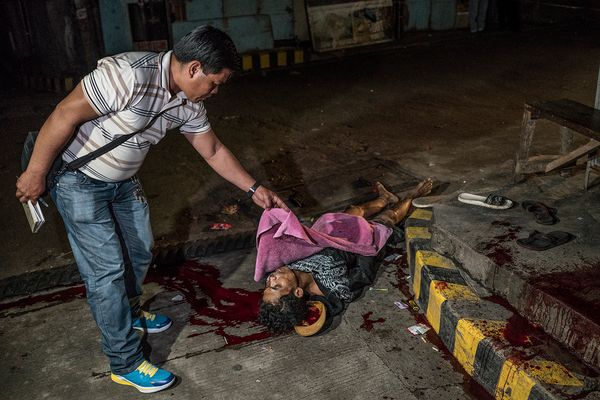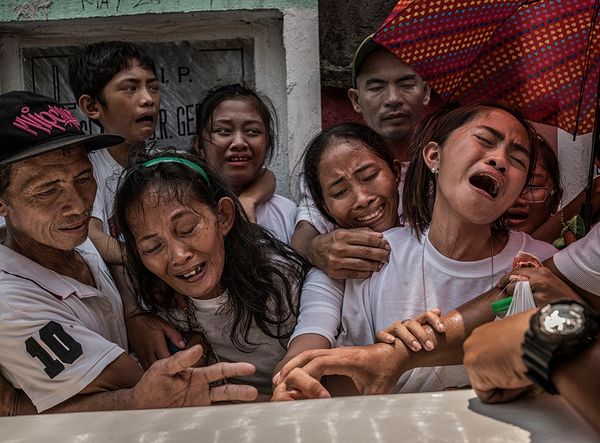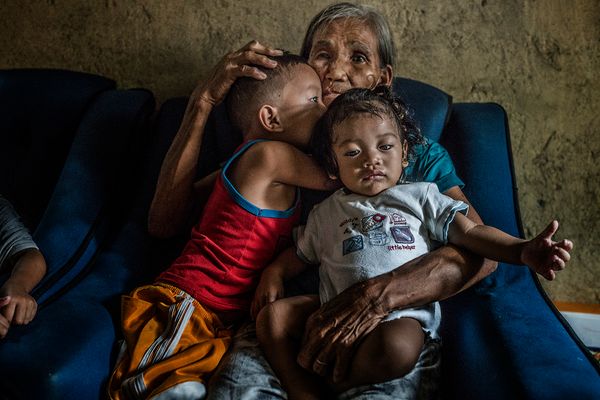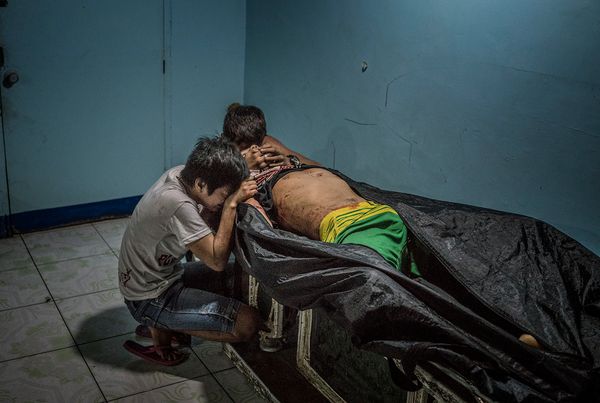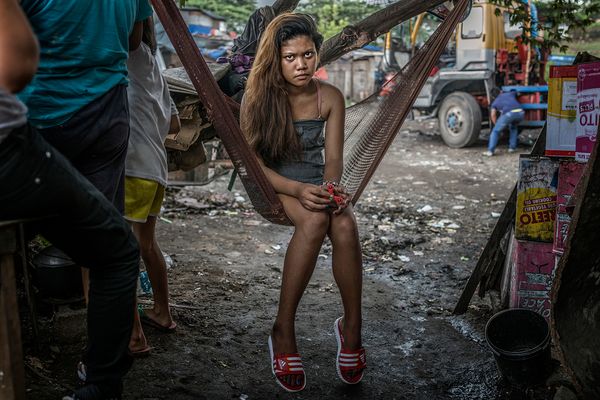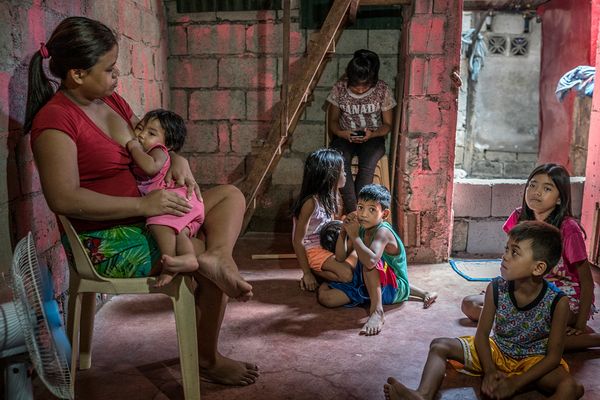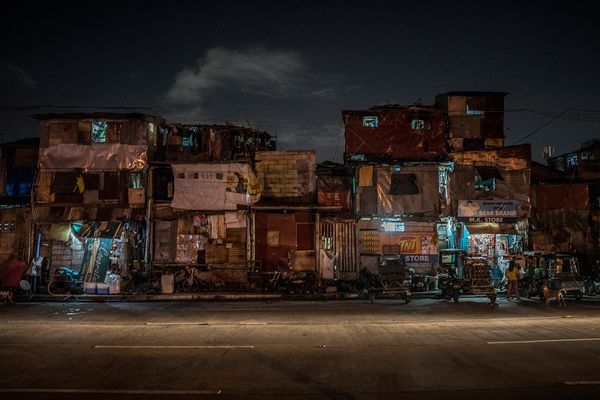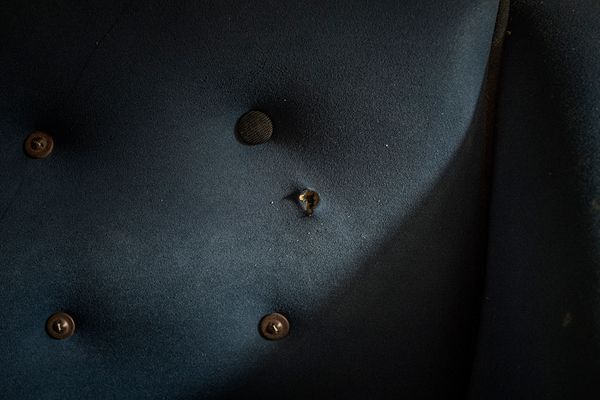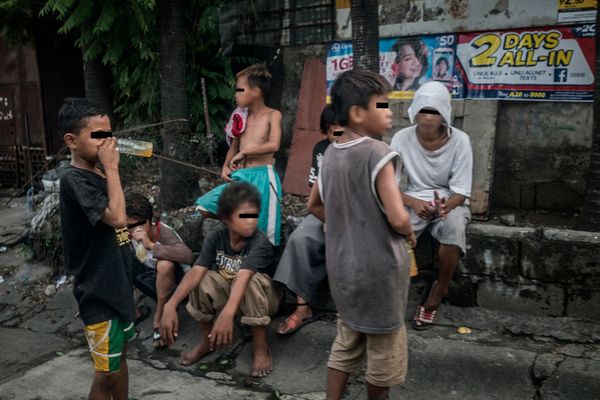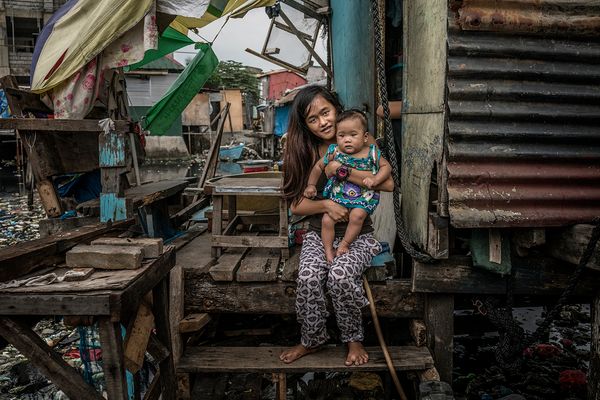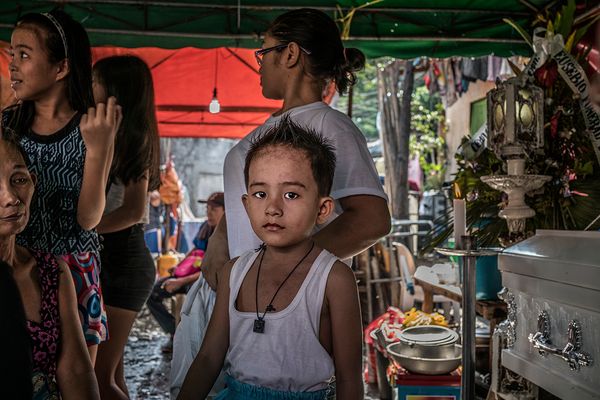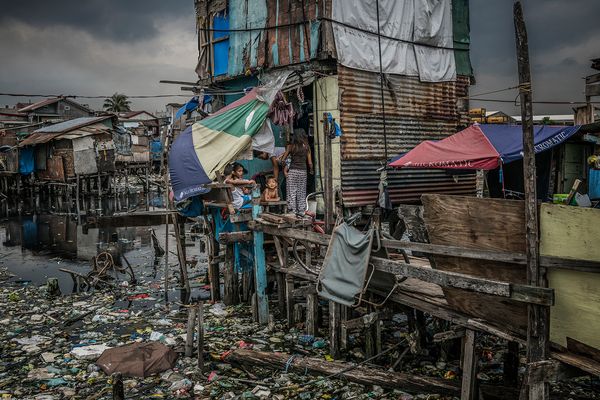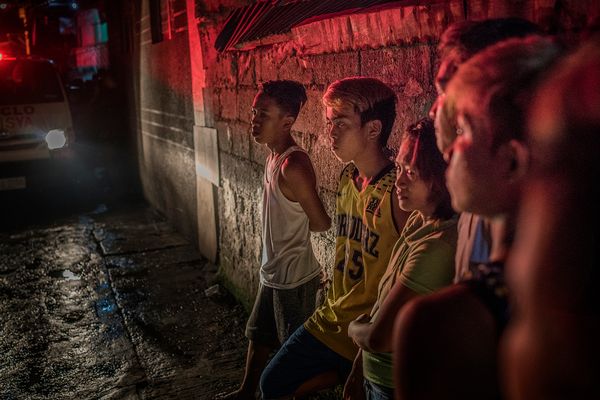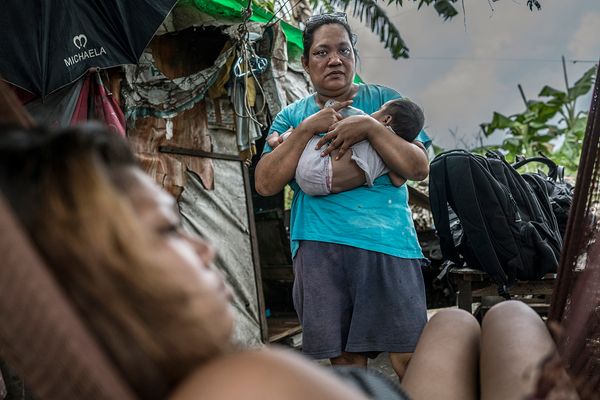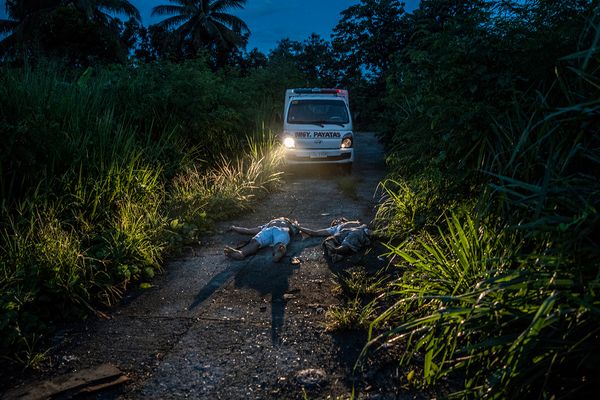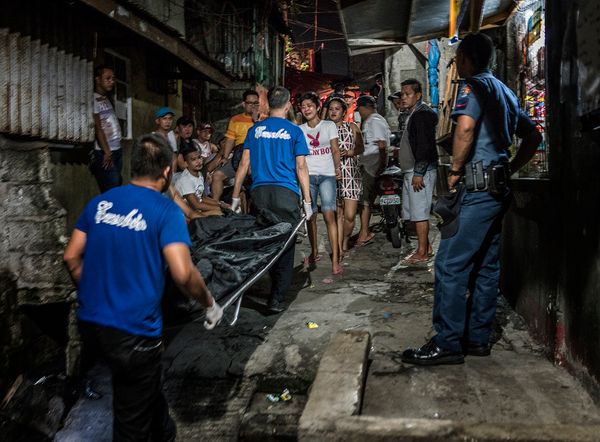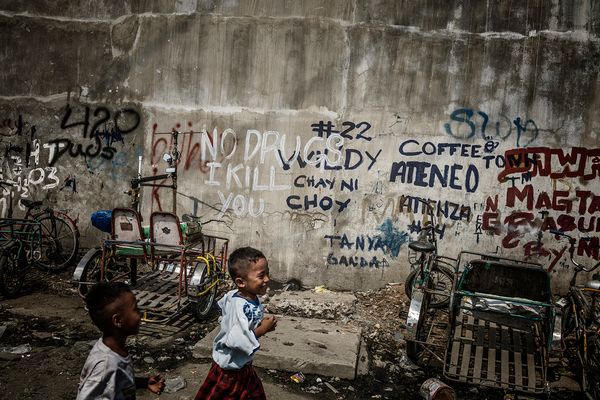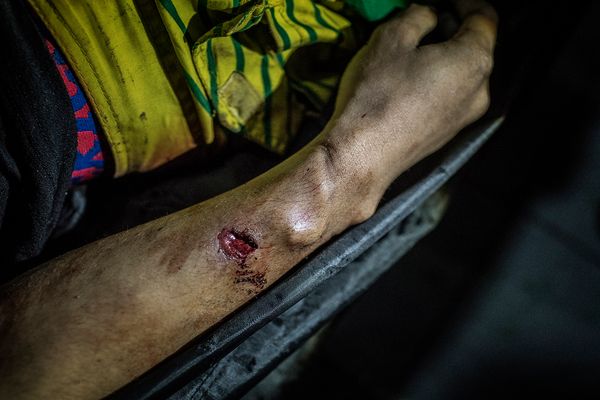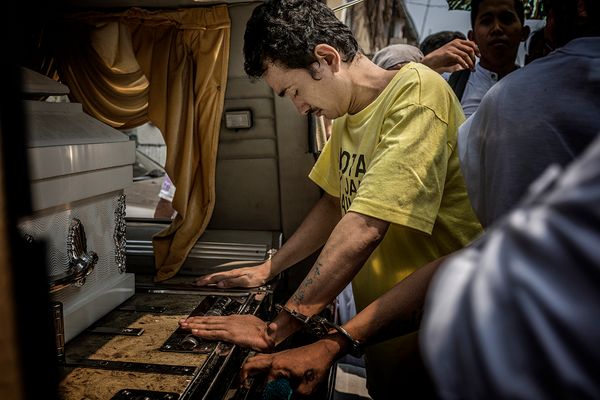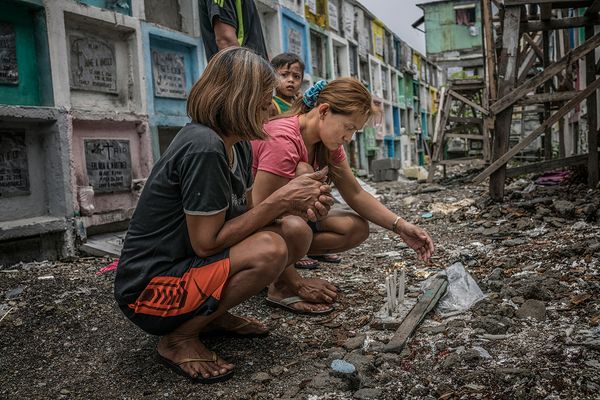Fruits of Impunity: Collateral Damage in Duterte’s War on Drugs.
-
Dates2017 - Ongoing
-
Author
- Topics Social Issues, Contemporary Issues, Documentary
- Location Philippines, Philippines
After thousands of extrajudicial killings in Duterte’s drug war in Manila’s vast slums, women are left to raise fatherless children in crushing poverty. The poor believed that, in Duterte, they’d finally found their savior. Instead he’s unleashed masked assassins delivering death with impunity.
Fruits of Impunity: Collateral Damage in Duterte’s War on Drugs.
In the slums of Navotas, 3 generations of the Dela Cruz family live in a two-storey plywood hut, raised on the posts over a stagnant, contaminated estuary. There are, well were, 11 in all. The shell of the makeshift house is fitted with discarded corrugated tin and plastic.
When the winds delivered the first swollen drops of rain, signaling the arrival of yet another tropical downpour, 16 year-old “Toto” would climb up to the roof to secure the ropes and heavy stones that prevented the swaying structure from being blown over. "He could climb so fast and so high, you'd think he was Spiderman," his mother Dolores fondly remembered.
The only way to get to the house by land was by navigating the kind of raised, rotten boardwalk where one misstep could mean taking a plunge into the black water below - polluted with raw sewage and so much plastic and Styrofoam flotsam, that in some places you couldn’t see the water at all. The Dela Cruzes were no better or worse off than their neighbors.
In the early morning hours, as Toto and his 15 year-old wife, Jasmine slept with their newborn, Hazel between them, four armed men wearing black masks came for Toto. Jasmine described how two of the assassins held guns to her head while the other two dragged Toto by the hair onto a wooden porch, shooting him a total of four times in the face and mouth. As he died, Jasmine cradled him as she cried, “Pa, not yet…Not yet please…We have a baby”.
Metro Manila’s massive slums are a vast dumping ground for the multigenerational poor and they make up the vast majority of the victims – an estimated 12,000 deaths (Human Rights Watch/ Dec. 2017) - in Philippines President Duterte’s War on Drugs, or “Tokhang”. Statistics obscure that for every life lost in the “Tokhang”, there is a family, like the Dela Cruzes, left to pick up the pieces of their shattered lives. Justice for families is not possible because assassins operate with impunity. Assassins know who they are, where they live but families don’t even know who the killers are.
The goal for this project is three-fold. The news cycle has clearly moved on from covering the extrajudicial killings (EJK) in the Philippines but I’ve been able to keep up to date by maintaining contact with collaborators in Manila.
1. I will work hand in hand with local activists like Father “Bong” Sarabia, director of St. Vincent Seminary in Quezon City, documenting his fearless work with widows in the slums communities there. Thus far assassins have not targeted outspoken clergy. Because Father Bong lives there and is trusted, I can learn about the true fears and hopes of residents and how best to document their struggle without endangering anyone in the community.
2. Outreach and amplification: The existing series, documented in June/July 2017, was been published in the Guardian and New Republic. Publishing stories in global media effectively amplifies the voices of victims.
Partnering with the Pulitzer Center, I discovered that outreach like photo exhibitions, complemented by panel discussions that encourage audience participation and classroom visits, leave a longer lasting impression. For example, the Head On Photo Festival in Sydney, Australia has invited me to exhibit the existing “Tokhang” project and participate in panel discussion this May.
While expanding the kind of outreach, outlined above, Facebook and Instagram posts will help generate interest by initiating the conversation about the issue.
3. Dig Deeper: Slum dwellers believed that, in President Duterte, they’d finally found their savior, their champion. Instead Duterte unleashed a spasm of slaughter that has created a siege mentality in the slums - delivering extrajudicial assassinations with impunity. Even if the killing stopped tomorrow, the damage done to thousands of families will affect them, and Filipino society, the rest of their lives. By gathering photo evidence, the photographs may actually help survivors to seek justice on behalf of their slain loved ones.
The vast majority of those left to raise fatherless children are women. I will reestablish contact with multiple families, including two teen widows and an 84-year old grandmother, who are left to raise as many as 7 children without male partners in the most crushing poverty.
Martin Luther King, Jr. said, “the silence of the good people is more dangerous than the brutality of the bad people”. This story must be told and my goal is not to rest until I find a way to document their stories.
